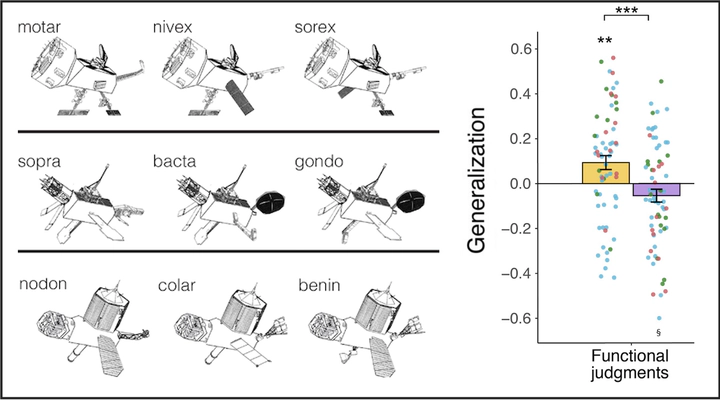
My role: As part of my Master’s thesis, I wrangled, analyzed, and visualized data from 7 experiments. I also wrote up the paper and made the figures.
Summary: It is one thing to remember information. But it is another to take what you learn and transfer it to new scenarios, such as applying a math concept to solve a new problem or improvising in live jazz. Because of known differences in brain activity throughout the day, I was interested in how time of day affects this ability to learn and generalize information. Across 7 experiments, I brought in 331 undergraduates into the lab either in the morning (8am) or evening (8pm) and had them learn new concepts, in which they had to later generalize what they learned to new scenarios. I found that people generalized much better in the morning than in the evening. This is consistent with neuroscientific findings showing that the brains has reduced inhibitory control in the morning. I speculate that this state of low inhibition can help people flexibly transfer what they learn to new scenarios (generalize) because of more spreading activation across memories, facilitating the ability to connect the dots and see new patterns.